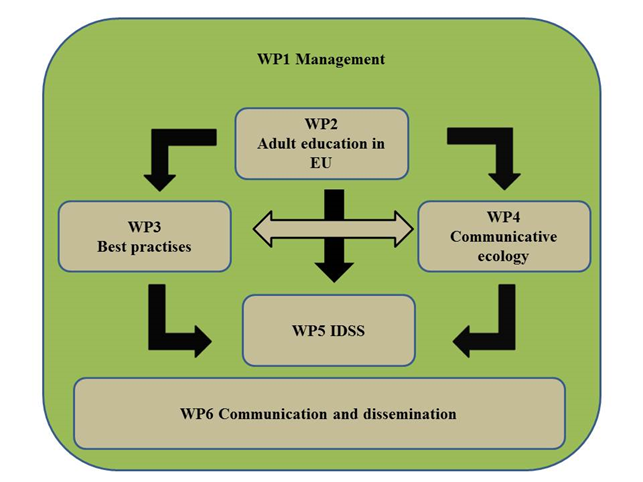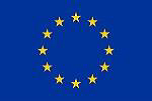https://www.slideshare.net/JaakkoHyyti/edumap-project-in-a-nutshell
Background
Research has shown that the European adult education system has failed to meet the educational needs of many vulnerable groups, such as people with low levels of basic or functional literacy, with deficient language and cultural skills (ethnic minority members, foreign newcomers), those who have dropped out of school and those not in education or training due to disability.
In this context, the situation of adult education in Europe needs to be reviewed in order to find the matching solutions for addressing vulnerable young people. Adult education should take account of the diverse cultural backgrounds of minority people and actively involve them in educational initiatives that match their learning needs. Those with low levels of basic and functional literacy, those not in education and training or those in situations of near social exclusion could be helped with adequate adult education policies.
Work plan
The aim of the project Adult Education as a means to Active Participatory Citizenship (EduMAP) is to understand and develop the real and potential impact of adult education on learning for active participatory citizenship in Europe.
In the quest for better matching in the field of adult education, both broad and targeted studies will be undertaken.
In the first phase, EduMAP will compile an inventory of the adult education policies and practices in EU Member States, particularly focusing on their relevance to young adults at risk of social exclusion (WP2).
Once a general understanding of the state-of-the-art in the EU28 has been gained, successful educational practices among young adults at risk of social exclusion will be investigated through case studies. Best practices within and outside the EU will be mapped and investigated (WP3).
EduMAP will study and map communicative ecologies in the field of adult education to understand how the providers and users of educational initiatives are situated in the flows of information and communication. Furthermore EduMAP will develop innovative forums for dialogue between educational agencies and young people (WP4).
The research findings will be used to generate an Intelligent Decision Support System (IDSS) to give policymakers and other stakeholders easy access to the information required to address the needs of vulnerable minority groups (WP5).

Adult Education in Europe
WP2 will identify and compare adult education policies and practices across Europe. Both past and present policies will be studied and future skills demands will be estimated.
The work package will pinpoint the shortcomings and inadequacies in statistical data making people at risk of social exclusion partly invisible and elusive in policymaking.
The current actors, dynamics, trends, mismatches and overlaps in adult education will be critically reviewed, with special reference to young adults at risk of social exclusion.
The role of public and private educational agencies in the EU28 will be compared.
The aim is to avoid unemployment and increase employment opportunities among the most vulnerable groups through adequate educational policies and practices.
Good practices
WP3 will identify and review educational initiatives that have proven to be successful in including vulnerable groups in active political, social and/or economic participation.
Examples of good practices will be sought in the EU and Turkey.
WP3 will investigate what impact the educational initiatives have had and to what extent the practices and policies have been effective in enabling the learners to actively participate in political, social and economic life.
The aim is to apply the lessons learned to other regions and educational environments.
Communicative ecologies
New forums for dialogue between educational agencies and the targets of educational policies and practices will be created through mapping communicative ecologies in the field of adult education.
The communicative ecologies approach refers to the ways in which information and communication flow between people and through infrastructures and institutions.
WP4 develops mapping to assess the communicative practices both among educational actors and vulnerable minority groups.
The aim is to produce and follow up innovative forums for dialogue and discussion between the providers and potential users of adult education.
IDSS
The research findings will be linked back to the educational practices by developing a prototype of an Intelligent Decision Support System (IDSS) for policymakers, educational authorities and other stakeholders.
The IDSS will facilitate access to scientific evidence for policymakers to support them in correcting imbalances in the field of adult education.
The aim is to contribute to the objective of establishing a cooperation mechanism among policymakers and educational authorities to improve policymaking.

